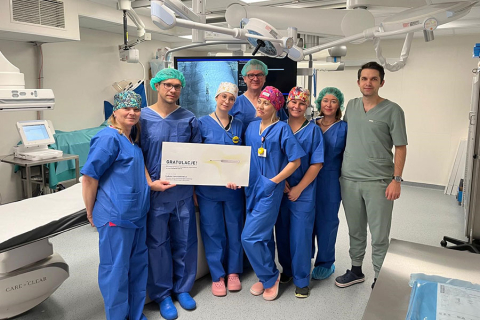The latest arrhythmia recorders are particularly important in diagnosing the causes of cryptogenic strokes and syncope. The device used in the procedure was equipped with an advanced artificial intelligence algorithm to further identify false-positive atrial fibrillation alerts. This is of crucial clinical importance, since one of the main problems of currently implanted arrhythmia recorders is exactly the excessive number of false-positive transmissions. In simple terms - the implanted device constantly monitors the heart rhythm, and artificial intelligence helps select episodes that are true arrhythmias requiring a change in treatment.
If an arrhythmia occurs, the device sends a recording of the heart rhythm to the monitoring center. The telemonitoring system is overseen by Dr. Jakub Rokicki.
In addition, the innovative device maintains a high, approximately 98% sensitivity in identifying clinically significant arrhythmic episodes, and - as the first arrhythmia recorder - makes it possible to differentiate between additional atrial and ventricular beats. This makes the patient's rhythm data more clinically valuable, and allows medical personnel to accurately determine further treatment.
